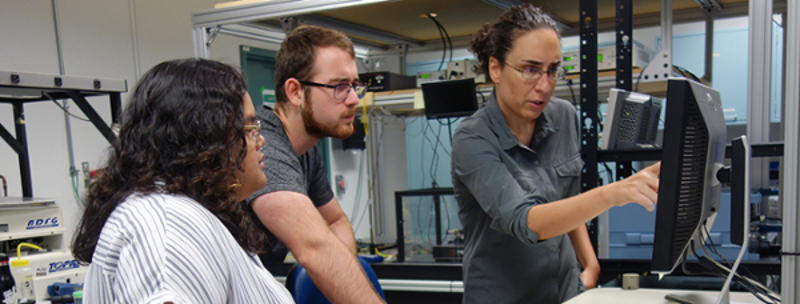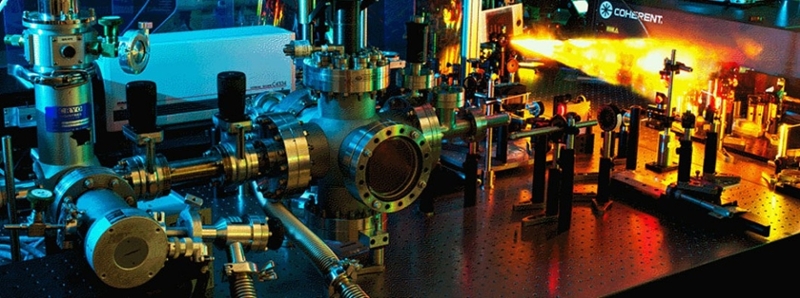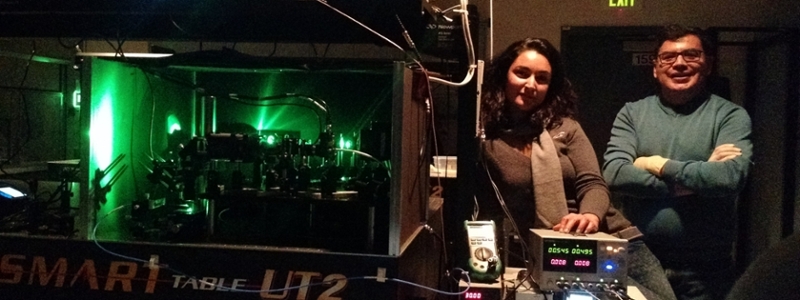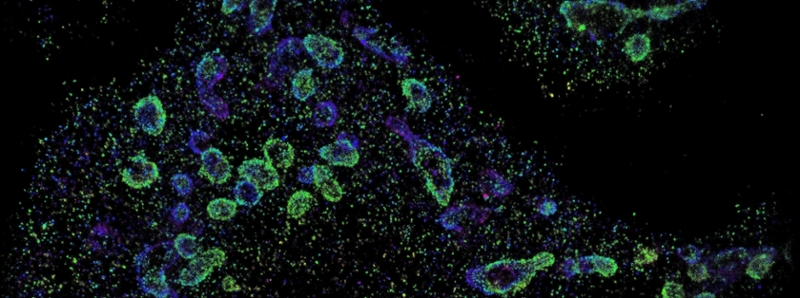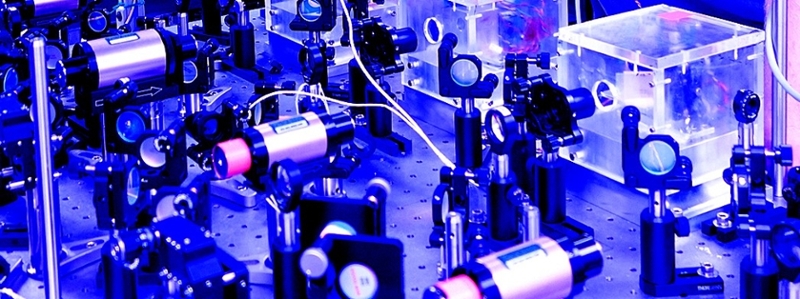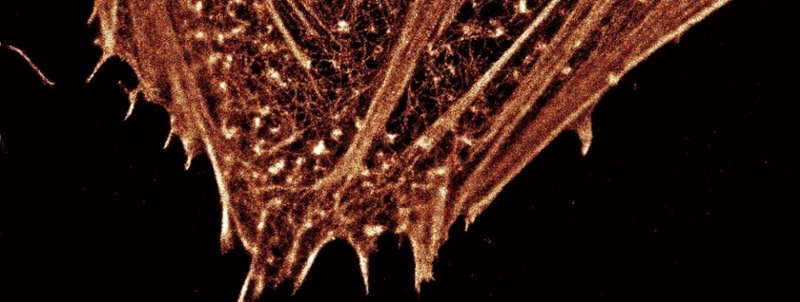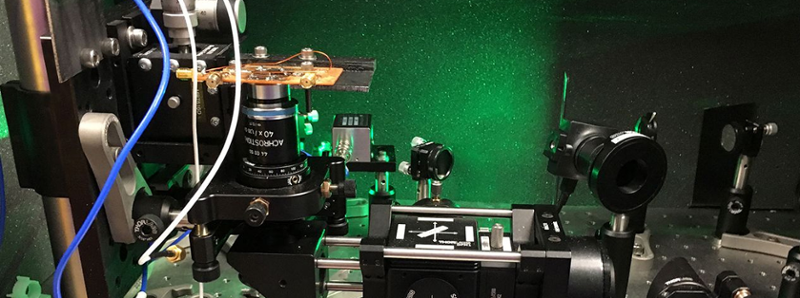Faculty research groups
Benefits of the Fellowship. The Experimental AMO Fellowship is offered to our most promising applicants interested in experimental AMO physics and related fields. The Fellowship includes a 15-month Research Assistantship (RA), beginning in the summer after the first academic year in the Physics PhD program and continuing through the summer after the second academic year. Students awarded an Assistantship also receive tuition and medical insurance in addition to their stipend. Fellowship recipients may work with any of the Faculty research groups listed above. Fellowship recipients may rotate between labs at their or their faculty supervisor's discretion. They could, for example, do research with one listed faculty in the first summer and then switch to another listed faculty in the second academic year. There is no formal guarantee for support in year 3 and beyond, but historically nearly all Fellowship recipients continue on as an RA until degree completion.
Eligibility Rules. In order to continue to hold the Experimental AMO Fellowship, Fellowship recipients ("AMO Fellows") must maintain satisfactory performance as both a TA and RA. In addition, AMO Fellows must:
- pass at least 2 core courses in the first semester with a grade of B- or better. At least one should be a B or better.
- pass at least 2 core courses in the second semester with a grade of B- or better.
By the end of the first academic year, AMO Fellows should have passed 4 core courses with a B- or better and received a grade of B or better in at least two of those courses. Core courses are defined in the Physics PhD Program page, currently they are Quantum Mechanics I and II (521/522), Electrodynamics (511), Statistical Mechanics (505), and Methods of Theoretical Physics I (466).
The purpose of this academic plan is to encourage AMO Fellows to finish their required coursework early so they can get involved in full-time dissertation-level research as soon as possible. Fellows are also encouraged to take electives based on their research interests and course availability. Rare exceptions to the academic plan may be granted on a case-by-case basis. To request an exemption, the Fellow must submit a petition to amo@unm.edu by April 5 of their 1st academic year and justify why a special exemption is merited in their case. The AMO Fellowship faculty will decide on petitions and communicate the outcomes in April.
If a Fellowship recipient is unable to complete the academic plan for core courses described above, they become ineligible to hold the AMO Fellowship. However, if the student meets the minimum Physics PhD Program requirements, they are still eligible to hold an RA with a faculty group (either with a participating AMO faculty member or another group) or a TA, pending mutual interest.
Process for finding an advisor. AMO Fellows are advised to spend their first 1.5 semesters meeting with at least 3 faculty on the list, attend group meetings, chat with students and postdocs, and then make a mutual decision as to which lab to join by March 31 of the Spring semester of their first academic year.
If an AMO Fellow is having trouble finding an advisor and they satisfy all other eligibility rules, they have until April 5 to submit a letter to amo@unm.edu notifying the AMO Fellowship faculty of the situation. The letter should describe the Fellow's research interests and preferred faculty advisors and outline the efforts already taken to find an advisor. The letter should also include a recent unofficial UNM transcript. The AMO Fellowship Committee will meet and provide the Fellow with a list of potential advisors, provided the other eligibility requirements have been met.
Working with another group. We always encourage students to find a research advisor that best matches their interests. If a Fellowship recipient decides to work with a faculty member other than the AMO Fellowship participating faculty, they should decline the Fellowship and pursue an RA with that advisor.
Academic plan. There are many ways to go through the program while satisfying our course requirements. Every student is assigned an academic advisor during Duty Week, and you should work with them to make a personalized plan that works for you. Below are a few example schedules that some of our previous students followed that would satisfy the AMO Fellowship eligibility rules:
Example 1 - Quantum optics heavy.
Fall, Year 1 (12 credits total):
PHYS 500: Chair's Seminar (1 credit)
PHYS 452: Research Methods (TA class) (1 credit)
PHYS 521: Quantum Mechanics I (3 credits)
PHYS 551: QM Problems session (1 credit)
PHYS 466: Methods of Theoretical Physics I OR PHYS 505: Statistical Mechanics & Thermodynamics (3 credits)
PHYS 566: Quantum Optics OR PHYS 581: Adv Topics: Intro to Quantum Information (3 credits)
Spring, Year 1 (11 credits total):
PHYS 500: Colloquium OR PHYS 500: OSE Seminar OR PHYS 500: CQuIC seminar (1 credit)
PHYS 511: Electrodynamics (3 credits)
PHYS 522: Quantum Mechanics II (3 credits)
PHYS 551: QM Problems session (1 credit)
One elective, e.g. PHYS 476L: Optics Lab, PHYS 571: Quantum Computation, PHYS 568: Nonlinear Optics, PHYS 581: Adv Topics: Physics and Chemistry of the Nanoscale (3 credits)
Fall, Year 2 (7 or 10 credits total):
PHYS 466: Methods of Theoretical Physics I OR PHYS 505: Statistical Mechanics & Thermodynamics (3 credits)
PHYS 566: Quantum Optics (if not offered in Year 1) (3 credits)
PHYS 500: Colloquium OR PHYS 500: OSE Seminar OR PHYS 500: CQuIC seminar (1 credit)
PHYS 650: Research (3 credits)
Spring, Year 2 (6 or 9 credits total):
PHYS 650: Research (6 credits)
Optional elective (3 credits)
Example 2 - Core courses heavy.
Fall, Year 1 (12 credits total):
PHYS 500: Chair's Seminar (1 credit)
PHYS 452: Research Methods (TA class) (1 credit)
PHYS 521: Quantum Mechanics I (3 credits)
PHYS 551: QM Problems session (1 credit)
PHYS 466: Methods of Theoretical Physics I (3 credits)
PHYS 505: Statistical Mechanics & Thermodynamics (3 credits)
Spring, Year 1 (11 credits total):
PHYS 500: Colloquium OR PHYS 500: OSE Seminar OR PHYS 500: CQuIC seminar (1 credit)
PHYS 511: Electrodynamics (3 credits)
PHYS 522: Quantum Mechanics II (3 credits)
PHYS 551: QM Problems session (1 credit)
One elective, e.g. PHYS 476L: Optics Lab, PHYS 571: Quantum Computation, PHYS 568: Nonlinear Optics, PHYS 581: Adv Topics: Physics and Chemistry of the Nanoscale (3 credits)
Fall, Year 2 (7 credits total):
One elective (3 credits)
PHYS 500: Colloquium OR PHYS 500: OSE Seminar OR PHYS 500: CQuIC seminar (1 credit)
PHYS 650: Research (3 credits)
Spring, Year 2 (6 or 9 credits total):
PHYS 650: Research (6 credits)
Optional elective (3 credits)
